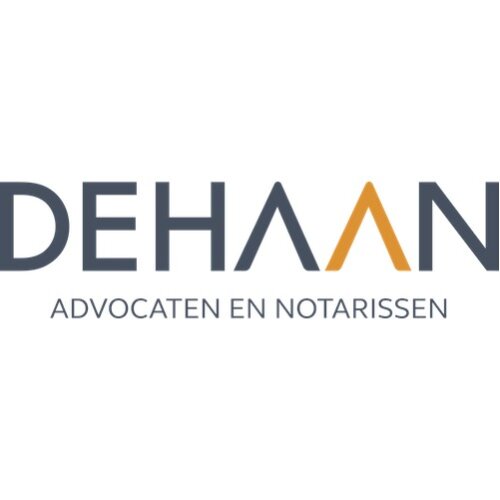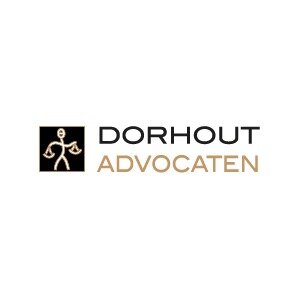Best Climate Change Law Lawyers in Groningen
Share your needs with us, get contacted by law firms.
Free. Takes 2 min.
List of the best lawyers in Groningen, Netherlands
About Climate Change Law in Groningen, Netherlands
Climate Change Law in Groningen refers to the collection of rules, regulations, and policies enacted at both the national and local levels to address environmental issues related to climate change. The Netherlands, known for its proactive climate policy and commitment to sustainability, operates under strict national laws, EU directives, and local ordinances. Groningen, as a progressive region, implements these laws through regional planning, energy transitions, and adaptation strategies to reduce greenhouse gas emissions, improve energy efficiency, and protect its unique landscape from climate-related risks, such as sea-level rise and extreme weather events.
Why You May Need a Lawyer
Engaging a lawyer who specializes in Climate Change Law can be crucial in various situations. Common reasons to seek legal help include:
- Challenging or complying with environmental permits for development or construction projects.
- Understanding your business obligations under the Dutch Climate Agreement.
- Responding to zoning regulations or municipal policies related to renewable energy installations like wind or solar projects.
- Navigating issues surrounding emission allowances or carbon trading schemes.
- Addressing disputes involving environmental impact assessments or liability for pollution.
- Participating in public consultations or hearings regarding energy transition policies.
- Advice on grants and subsidies for sustainability projects or energy conservation.
Having legal expertise ensures your interests are protected, minimizes compliance risks, and assists with advocacy in administrative, civil, or even criminal proceedings linked to environmental obligations.
Local Laws Overview
In Groningen, Climate Change Law is shaped by a blend of national Dutch statutes, EU regulations, and municipal strategies. Some of the most relevant legal frameworks include:
- Climate Act (Klimaatwet): Mandates a substantial reduction in greenhouse gas emissions nationwide.
- Environmental Management Act (Wet milieubeheer): Governs permits, environmental impact assessments, and pollution control.
- Spatial Planning Act (Wet ruimtelijke ordening): Regulates land use, including areas designated for renewable energy infrastructure.
- Dutch Climate Agreement (Klimaatakkoord): Sets emission targets and outlines cooperation between public and private sectors.
- EU Green Deal and Emissions Trading System: Affect industrial, agricultural, and energy sectors in Groningen.
- Municipal and Provincial Climate Strategies: Groningen's local government adopts additional policies for sustainable urban development and adaptation to climate impacts.
Awareness of these laws helps individuals and organizations take appropriate action when developing projects, managing properties, or advocating for environmental justice in Groningen.
Frequently Asked Questions
What is Climate Change Law?
Climate Change Law encompasses the legal frameworks aimed at mitigating climate change effects, regulating emissions, promoting sustainability, and ensuring adaptation to changing climate conditions.
What environmental permits are required for renewable energy projects in Groningen?
Depending on the project's size and location, permits may be required under the Environmental Management Act, zoning laws, or other provincial regulations. A lawyer can help determine which approvals are necessary.
How does the Dutch Climate Act affect businesses in Groningen?
The Climate Act sets emission reduction targets. Businesses must comply with energy efficiency measures, report emissions, and potentially invest in cleaner technologies or face penalties for non-compliance.
What steps must be taken before building on land near flood-prone areas?
Dutch law requires thorough risk assessments, adherence to zoning plans, and sometimes specific adaptation measures. Legal guidance ensures compliance and minimizes liability.
Can individuals or groups challenge planning decisions related to climate policy?
Yes, there are formal processes for public consultation and legal challenges. A lawyer can guide you through objections, appeals, or court procedures.
Are there incentives for adopting green technologies in Groningen?
Various grants and subsidies are available at the national and local levels for sustainable practices, which a lawyer can help you access and navigate.
Who enforces climate-related laws in Groningen?
Enforcement is split between national authorities, the Province of Groningen, and local municipalities, often working together to monitor compliance and impose sanctions when necessary.
What role does the EU play in Groningen's climate policy?
EU directives and regulations, such as the EU Green Deal, directly influence local policies on energy, agriculture, and emissions trading, which local authorities implement.
How can companies avoid legal issues related to emissions?
By staying up to date with changing regulations, performing regular compliance checks, participating in emissions reporting schemes, and seeking legal advice when introducing new technologies or processes.
How long does it take to resolve a climate law dispute?
Resolution timelines vary significantly based on complexity, but negotiations may take months, while court proceedings can extend longer. Early legal intervention may expedite the process.
Additional Resources
If you need more information or assistance, consider these resources:
- Provincie Groningen - Climate and Sustainability Department
- Gemeente Groningen - Environmental Permits Office
- Dutch Ministry of Infrastructure and Water Management (Ministerie van Infrastructuur en Waterstaat)
- Netherlands Enterprise Agency (RVO) for subsidies and project support
- Environmental NGOs such as Milieudefensie
- Legal aid services from the Dutch Bar Association (Nederlandse Orde van Advocaten)
Next Steps
If you require legal assistance in Climate Change Law, start by gathering all relevant documents and information about your situation. Identify the key issues or concerns, then contact a specialized climate law lawyer or seek a recommendation through local bar associations. Schedule a consultation to discuss your case, understand your rights and obligations, and determine the best way forward. Legal experts can help you navigate complex regulations, engage in negotiations with authorities, seek remedies, or represent you in legal proceedings. Taking timely action ensures compliance, reduces risks, and supports your commitment to a sustainable future in Groningen.
Lawzana helps you find the best lawyers and law firms in Groningen through a curated and pre-screened list of qualified legal professionals. Our platform offers rankings and detailed profiles of attorneys and law firms, allowing you to compare based on practice areas, including Climate Change Law, experience, and client feedback.
Each profile includes a description of the firm's areas of practice, client reviews, team members and partners, year of establishment, spoken languages, office locations, contact information, social media presence, and any published articles or resources. Most firms on our platform speak English and are experienced in both local and international legal matters.
Get a quote from top-rated law firms in Groningen, Netherlands — quickly, securely, and without unnecessary hassle.
Disclaimer:
The information provided on this page is for general informational purposes only and does not constitute legal advice. While we strive to ensure the accuracy and relevance of the content, legal information may change over time, and interpretations of the law can vary. You should always consult with a qualified legal professional for advice specific to your situation.
We disclaim all liability for actions taken or not taken based on the content of this page. If you believe any information is incorrect or outdated, please contact us, and we will review and update it where appropriate.











